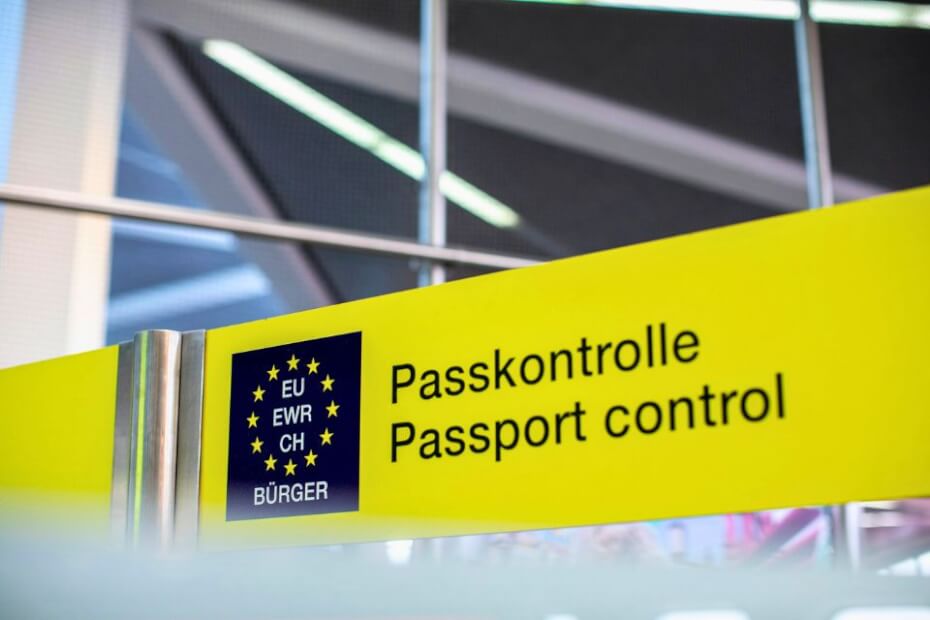
New research has revealed that most United Kingdom (UK) citizens are still clueless about the Entry/Exit System (EES).
The EES is the European Union’s (EU’s) new automated border check system. It is set to launch in November this year.
Instead of stamping passports at the EU border, the EES will record entries and exits through biometric data.
It will impact all non-EU travelers, including short-stay visa holders and visa-exempt nationals such as British citizens.
Nearly two-thirds, or 63 percent, of British citizens are still unaware of the EES and how it will affect travel to the Schengen Zone.
This is according to an EES survey conducted by Co-op Insurance, with the participation of 2,000 British adults.
Almost a quarter, or 22 percent, said they would be “put off” visiting the EU bloc because of the EES.
Graham Ward-Lush, head of travel at Co-op Insurance, said that stress during travel is not unheard of.
It usually stems from “navigating the fast pace that comes with being in an airport and following the various processes.”
The EES survey showed that 27 percent find airport security checks the most stressful part of a holiday trip.
“As these new changes to airport security launch, it’s important for travelers to be aware of what to expect so they can plan accordingly,” Ward-Lush said, as reported by TTG Media.
EES survey on possible lengthy delays during travel
According to the EES survey, 38 percent said the possibility of lengthy delays would make them reconsider visiting the Schengen Zone.
Several travel and transportation officials had warned the UK European Scrutiny Committee of long queues at the UK-EU border.
The Port of Dover, for instance, told the European Scrutiny Committee of possible 14-hour delays due to the EES.
This is because passengers must first disembark from their cars or coaches at vehicle crossings to register for the EES.
The resulting traffic jam from queueing vehicles would also severely impact local businesses.
Eurostar may also have to limit passenger numbers at London’s St. Pancras train station to prevent long waiting times.
The train stations lack space to install extra EES kiosks to facilitate the new automated border checks.
Travel and transport officials anticipate delays to be worse at the France-UK borders due to the massive volume of passenger traffic.
They also expect long queues at borders with ‘juxtaposed controls,’ where EU border checks are conducted on the UK side.
Another leading cause of delay is requiring travelers to register biometric data before a border officer.
The EU is developing an app to address this. However, many are not optimistic that it can speed up the process.
How EU’s EES impacts British travelers
As per EU policy, travelers must register facial and fingerprint data in the EES before a border officer the first time they enter the Schengen Zone.
On future visits, they can use fingerprints or facial scans to confirm their permission and record their entry and exit.
The EES will store travelers’ passports and biometric data for three years or until their passports expire.
It will refresh and keep their data for another three years each time they visit the Schengen Zone.
If they visit the EU after three years, when their data expires, they must register again before a border officer.
Around half, or 46 percent, of the EES survey respondents said they didn’t like the idea of their biometric data being captured or stored in the system.
Prepare for more travel requirements post-Brexit
British citizens are considered third-country or non-EU nationals after the UK left the EU.
UK citizens do not need a visa to visit the Schengen Zone for short trips. However, they must comply with travel policies for non-EU nationals.
This includes registering for the EES and, by mid-2025, obtaining an ETIAS before traveling to the Schengen Zone.
The ETIAS, or the European Travel Information and Authorization System, is the EU’s equivalent of the UK’s new Electronic Travel Authorization (ETA).
Both are digital travel permits that allow eligible individuals to visit the UK or the Schengen Zone without a visa.

